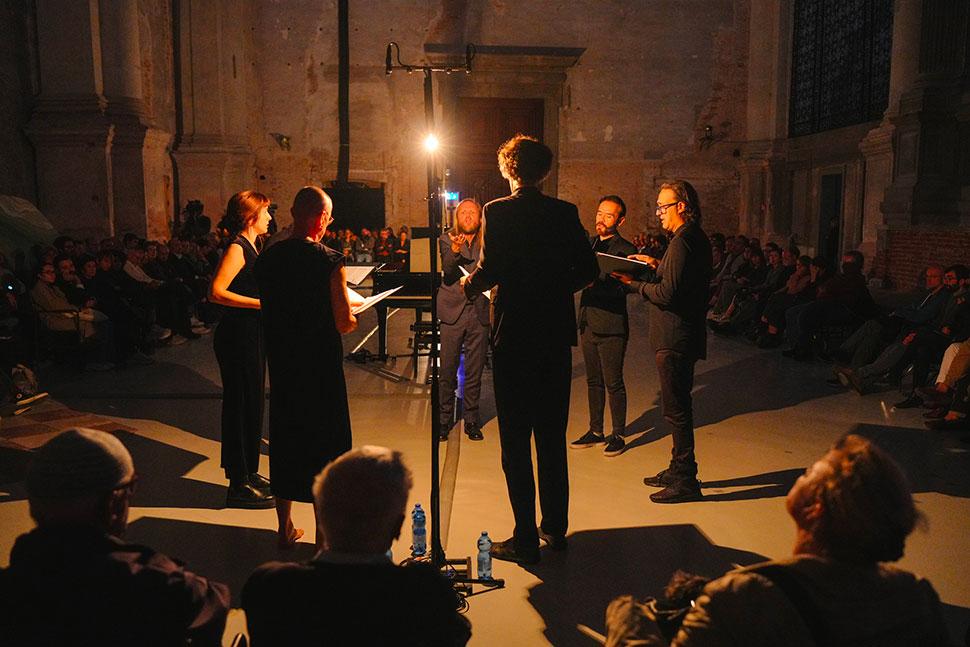| GRAINDELAVOIX - EPITAPHS OF AFTERWARDNESS: | Performance (approx. 80’) |
|---|---|
| Grand piano and square piano: | Jan Michiels |
| Artistic direction: | Björn Schmelzer |
| Soprano: | Florencia Menconi |
| Countertenor: | Andrew Hallock |
| Tenors: | Albert Riera, Andrés Miravete |
| Baritone: | Tomàs Maxé |
| Bass: | Arnout Malfliet |
| In collaboration with: | Ocean Space – Chiesa di San Lorenzo |
Graindelavoix - Epitaphs of Afterwardness

Description
Music dies at birth, Leonardo da Vinci once claimed, contrasting its ephemerality with the permanence of visual art. This programme stages a resonance between two composers separated by centuries – Guillaume de Machaut and György Kurtág – in order to explore music not as a monument but as a site of decomposition. Rather than striving to restore Machaut to any supposed original form, the performance treats each piece as a subject, placing it in direct confrontation with musical epitaphs from the eighteenth to the twentieth century. Kurtág’s terse, fragmentary works serve not as commentary but as counter-presences, 201 dislodging historical fixity in favour of affective and temporal instability. At stake is a set of questions concerning musical afterlife (Nachleben) and the changing investment of the performer: What does it mean for a fourteenth-century composition to live again in a new sonic ecology? How does the idea of a musical work shift when treated as an epitaph rather than a statement? And what forms of listening become possible when perfor- mance acknowledges this continual decay—not as loss, but as condition of existence?